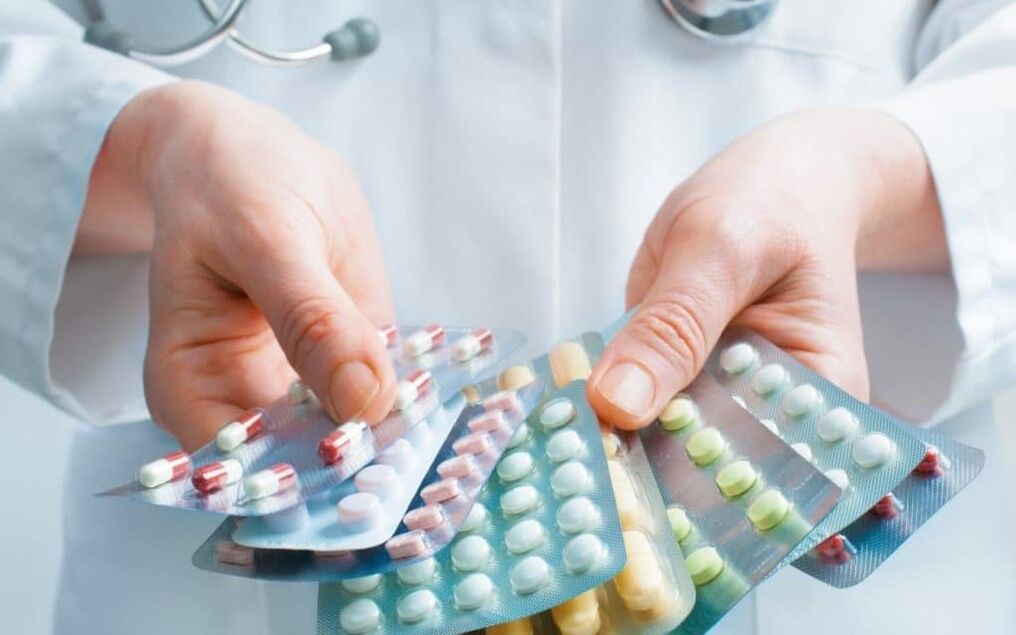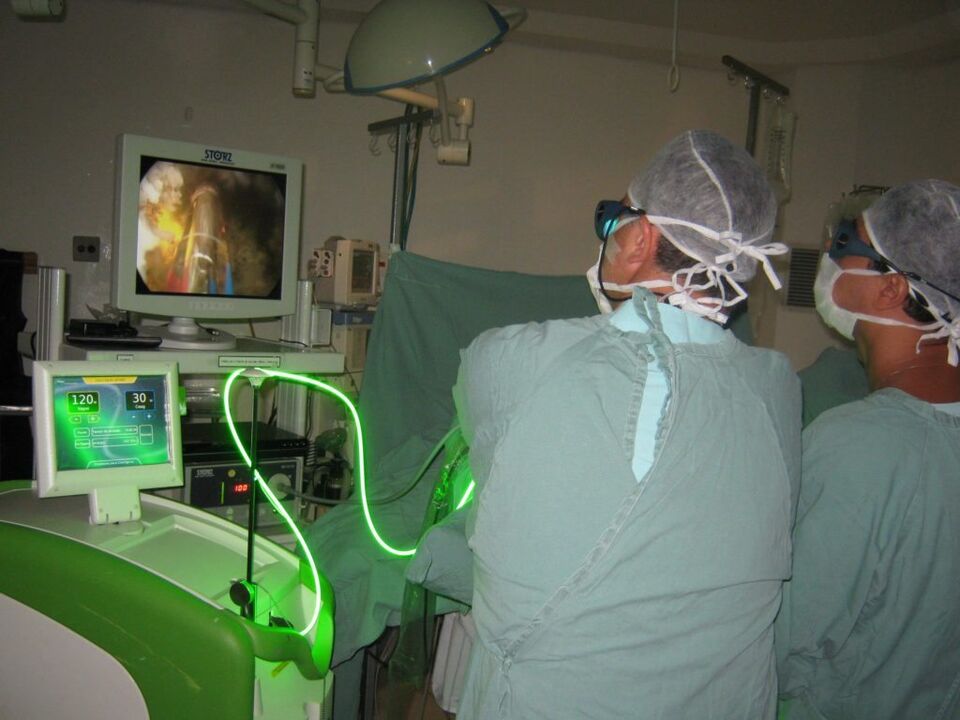Faced with inflammation of the prostate gland, every man sooner or later asks the question of whether prostatitis can be treated. To assess the chances of full recovery of organ function, it is necessary to accurately understand the mechanisms of disease progression.
Prognosis for acute prostatitis
Whether prostatitis is treated depends, first of all, on the type of disease. According to the nature of the course, acute and chronic prostatitis were noted. Due to development, the disease is contagious and non -contagious.
The best prognosis for complete recovery of prostate function is in acute inflammation. Interestingly, this type of disease is diagnosed in men of any age group, while chronic congestive prostatitis is a disease of older men. Acute inflammation of the prostate sometimes develops in children, with a background of infectious diseases of the urinary tract.
The cause of acute inflammation is an infection of the prostate gland. The infection usually enters the organ from the bladder or through the bloodstream. The causative agents of the disease can be both opportunistic microorganisms (E. coli and Pseudomonas aeruginosa) and sexually transmitted pathogens (chlamydia, ureaplasma).
Bacterial prostatitis can be cured if the disease is diagnosed in a timely manner. Treatment is carried out with antibacterial drugs. The drug is selected taking into account the inflammatory agent. As a rule, drugs of the penicillin or tetracycline group, fluoroquinolones are used. In addition, several agents for symptomatic therapy are prescribed - anti -inflammatory drugs, antispasmodics, alpha blockers for prostatitis, immunostimulants. Perhaps the appointment of a course of physiotherapy after the removal of acute inflammation.
Acute prostatitis is treated within a few weeks; the course of treatment rarely exceeds two months. Then the patient is prescribed a drug preparation with an herbal composition to normalize the function of the prostate gland, which should be used for a long course. As a rule, acute infectious prostatitis detected in a timely manner is successfully treated and does not cause complications such as impotence or infertility.
This form of the disease can be suspected by rapidly developing symptoms. The characteristic signs of prostatitis are pain when urinating, incomplete emptying of the bladder, cramps in the perineum and in the lower abdomen.
Prognosis for chronic prostatitis
It is necessary to consult a doctor about whether chronic prostatitis is being treated. As a rule, this form of the disease develops as a result of improper therapy for acute inflammation of the prostate gland, or against the background of metabolic disorders in the pelvic organs.
Whether this type of disease can be cured depends on the following factors:
- patient age;
- disease stage;
- severity of symptoms.
With age, there is an increase in the size of the prostate gland. This is due to the body’s natural aging process and changes in male hormone levels. The older the patient, the harder it is to cure the disease.
Chronic prostatitis develops due to impaired circulation and lymphatic drainage in the pelvic organs. In most cases, it is diagnosed in obese men with an inactive lifestyle.
The symptoms of this type of prostatitis are manifested by impaired urination, erectile dysfunction and pain. The prostate gland is swollen, there is a thickening of organ secretions, which can lead to the development of infertility in a man due to changes in the composition of seminal fluid.
Whether prostatitis can be completely cured depends on how long the disease has been diagnosed. This form of chronic inflammation develops slowly, it can take up to 7 years from the beginning of microcirculation in the organ to the development of inflammation. In the early stages, prostatitis is successfully treated by normalizing organ trophism. For this, the patient is prescribed several drugs and physiotherapeutic methods aimed at normalizing the tone of the ducts and muscles of the pelvic organs.
In the final stages of congestive prostatitis, irreversible changes occur in the organs. Long-term use of drug therapy becomes ineffective, so the only way to get rid of the disease is surgery. In this case, both partial and complete removal of the organ (prostatectomy) is practiced.
Methods of treatment of chronic prostatitis
Whether chronic prostatitis in men is treated depends on when the man goes to the doctor. In the early stages of organ trophism violations, drug therapy is used. For treatment used:
- prostate protector;
- drugs to improve blood microcirculation;
- alpha blockers;
- immunostimulant.

To relieve inflammation, patients are indicated to take non-steroidal anti-inflammatory drugs. The course of treatment rarely exceeds 10 days. Then therapy is continued with herbal preparations, the action of which is aimed at improving the microcirculation of blood in the inflamed organs. Since the disease is accompanied by urinary incontinence, drugs of the alpha blocker group are used. Their action is aimed at relaxing the muscles of the bladder wall and prostate gland. The drug acts directly on receptors that control muscle tone. This allows you to reduce the pressure of the prostate on the surrounding tissues and normalize the outflow of urine by relieving the bladder.
Chronic prostatitis is treated with immunostimulants. After removing the inflammation and reducing edema, it is important to prevent the development of disease progression, which is often observed with slight hypothermia or decreased immunity.
Physiotherapy - treatment with electric currents, magnetic fields, ultrasound allows you to restore blood circulation and metabolic processes in the cells of organs. As a rule, with timely detection of congestive prostatitis, properly developed drugs and physiotherapeutic treatment regimens minimize the risk of disease progression in the future.
Radical treatment
Having found out whether prostatitis can be cured or not, it is important to understand that in some cases, medications need to be taken for years. Over time, the effectiveness of drug therapy decreases, so the only way to get rid of the disease is with surgery. Depending on the severity of the inflammation and edema of the organ, either partial removal of the organ or radical prostatectomy is practiced.
The first place among the methods of affecting the prostate is occupied by minimally invasive surgery and laser treatment. During this procedure, layer -by -layer burning of a small area of the prostate gland is carried out, the tissue of which has changed as a result of prolonged edema. The operation lasted no more than a few hours, and recovery took several days. Full recovery will take no more than a month. The advantage of minimally invasive methods is that there is no risk of bleeding and complications. As a rule, such interventions do not affect reproductive and erectile function in any way. Feedback from patients allowed us to conclude that laser exposure to the prostate gland in prostatitis is the most effective and efficient way to treat chronic prostatitis.

Useful tips
Prostatitis imposes some restrictions on the patient’s life. To speed up the recovery of the prostate gland will help:
- balanced diet;
- rejection of bad habits;
- regular sex;
- moderate physical activity.
To get rid of this disease, an integrated approach is needed. In addition to drug treatment, physiotherapy, massage, a set of exercises to normalize blood circulation in the pelvic organs are practiced. In addition, patients are shown a diet, foods useful for men's health are introduced into the diet - citrus fruits, nuts, pumpkin. It is recommended to take flaxseed and pumpkin oil in addition to the diet.
Chronic prostatitis requires careful attention to one's own health, otherwise any hypothermia or stress can cause exacerbation. Frequent exacerbation of prostatitis involves disease progression and impaired prostate gland function. In order for the night urge to urinate to remain in the past and not return, in addition to taking medication to relieve inflammation, it is necessary to take immunostimulants. To strengthen the nervous system, intake of B vitamins, drugs with magnesium, sedatives are indicated.
It is important to remember: any disease can be treated successfully if diagnosed in a timely manner, and prostatitis is no exception. If the patient does not start the disease, follows the doctor's recommendations and does not treat yourself, you can get rid of prostatitis.
























